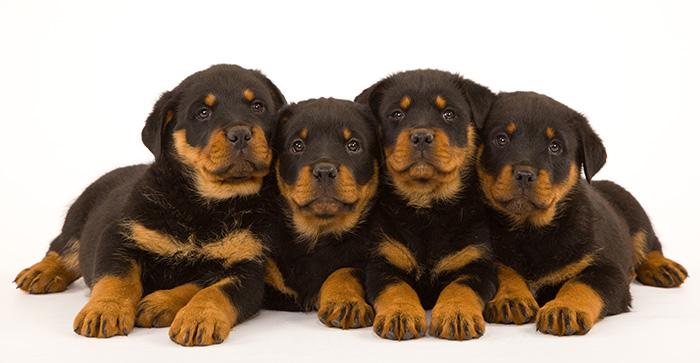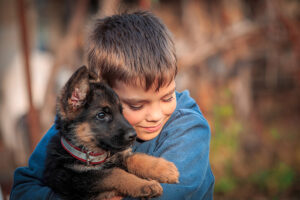Reset and Rewind- An Argument for Breeders getting back to Breeding
By: Jessica Freni with Jennifer Buckmaster
Stock Photos
Who benefits from Breeders (responsible, show, preservation breeders, etc) BREEDING? The simple answer is EVERYONE. We need to reset and rewind our state of mind, that the primary purpose of Breeders is breeding. We are not called “SHOWers” or just “exhibitors”,at the heart and core of the sport and the fancy, breeding is the backbone. It’s past time to destigmatize Breeders breeding. Trash that old, AR (Animal Rights) based mindset that there is some sort of warped pride to be had in how infrequently you have litters, how hard you are to find and how much money is lost. There is nothing wrong with being a “hobby” breeder and it being your passion project, but why not also look at it as you are a professional with a skill set providing a valuable service that should be compensated accordingly?
THE BREEDER
Of course it is to the benefit of the Breeder directly, their program and ultimately their show success to breed more than infrequently. Jennifer Buckmaster explains that Breeders who breed regularly “can literally afford to be much more picky than a [casual or infrequent] hobby breeder. If a well-planned breeding isn’t maturing as hoped, a quantity breeder can easily let that small branch of their pedigree go without trapping themselves or breeding their program into a corner. It’s a much smaller loss than it would be to a breeder who only produces a litter once a year or less… a quantity breeder is consistently breeding forward, they move through generations much faster than a [smaller scale] hobby breeder does. A quantity breeder may have three to four generations all producing litters. This means that they can ‘see forward’ a lot more quickly, and course correct if necessary. This means that they can more quickly correct or remove faults from their lines than the hobby breeder can.”
From a practical standpoint there are also financial considerations. More puppies, yes means more of the time and the expenses that come along with breeding (titling, testing, repro cost and whelping expenses), but also means an increase possibility of coming out ahead bring an influx of needed funds back into the breeding program itself which ensures sustainability, as Jennifer explains, “Breeding correctly costs money. That money put in comes back in spades to the ethical quantity breeder – but ethical quantity breeders have also put in the time, and the hard work. Substandard breeders are typically disinterested in doing that – it hurts their short-term profit, which is all they’re interested in.”
Just because you consider your breeding program your “hobby” and passion, certainly doesn’t mean you cannot be successful at it! What other “hobby” do people commit to that they don’t practice or are expected to “lose” (financially) at to be considered successful or the best?
THE BREED
Even show breeders, preservation breeders and hobby breeders alike have been warped into accepting this concept that it is scandalous, unethical, even shady practices to be a breeder who BREEDS (coining the phrase “show mill” to further consume and divide our own). Today’s, “show mill” is in fact, not unlike the show kennels of great esteem and admiration during the Golden Age of dog shows; large scale kennels with frequent litters of puppies tumbling about with the hopes of tomorrow’s next great show dog among them and providing well-bred family pets from the rest. You cannot preserve a breed if you are not contributing to it. Even in the most simple statistical way, more of a breed, bred to standard with health at the forefront, is a positive contribution to the existence and continuation of a breed. As Jennifer says,
“Ethical, responsible quantity breeders have the breed’s future front and center – they aren’t just producing puppies, they are producing the literal future of the breed. And yes, it’s possible for those puppies to be well raised and placed in appropriate homes.” In a more sophisticated consideration more of a breed is a positive for the show ring as well. Why were Breeders’ dogs exhibited in the show ring fifty, sixty, or seventy years ago often regarded as “typier” or “more consistent” with individual kennels having a clear “type”? Simple. They bred more. As Jennifer elaborates,
“An ethical quantity breeder is constantly scrutinizing their stock to ensure only the best are being bred forward. A hobby breeder who may only breed once a year (or less!) doesn’t always have that ability – they may have to move forward with what they have, or risk starting over completely from scratch. Or, they may be so attached to their line that they convince themselves that what they kept is absolutely amazing – despite the fact that they are consistently not excelling in whatever their title venues of choice are… volume lends experience. Because the quality breeder may evaluate six or more litters a year, and watch many of those puppies grow, they tend to have a better eye in the whelping box than the hobby breeder. I would almost always rather sit with a quantity breeder who has been breeding for fifteen years to evaluate a litter, than a hobby breeder who has been breeding for fifty. Because, in all likelihood, that quantity breeder has well out-produced the hobby breeder in their shorter time – and therefore, more likely will make the more discerning choice during evaluations.”
THE PET PUBLIC
Breeding more benefits the breed. Read that again. People, the pet public, only care about that which they are impacted by, this includes Breeders they have built long, trusting relationships with and the breeds that touch their lives by sharing their home. This can be both negative (e.g. when their only experiences with a breed come from rescues or unfit, lacking type, bad temperament, unhealthy poorly bred examples) or extremely positive by fostering breed loyalty and caring about its continuation. It’s the perfect time and climate to fundamentally reset our mindset…or better yet, rewind it. Before the Animal Rights agenda (ARA) was so successful at making Breeder as dirty four letter word selling to the pet public that every breeder is a “puppy mill” or unscrupulous , profit-driven “backyard breeder (BYB)”, Breeders were respected and the primary source of the American family pet, the purebred dog.
It is unreasonable and unrealistic to expect good, enthusiastic, qualified family homes to wait years to acquire a pet. Ultimately, in absence of availability of well-bred dogs, they often compromise on quality of puppy and breeder. “Successful ethical quantity breeders are more likely to have dogs out in show homes than the [infrequent] hobby breeders are because they are successful and highly visible, they tend to get a lot of referrals. They also have the ability to be more discerning of homes than a breeder who maintains a much smaller waiting list – they are more likely to have the freedom to place all of their puppies from a litter into show homes, if that’s what suits them. As a hobby breeder, let me tell you how hard it is to find show homes when you only breed one litter a year,” explains Jennifer.
With the pandemic has come an unprecedent influx of puppy inquiries, yes, there are many who are impulse inquiries from the bored and unprepared, but there’s a silver lining. Homes who have reflected, reassessed their priorities and been gifted the rare gift of time to devote to giving a puppy a solid foundation… and there are some looking at coming back to the purebred dog. They love doodles because they have them and have been sold a clever concept with pet family friendly marketing. They love rescues because they’ve been successfully sold the “adopt don’t shop mantra”. They can fall back in love with the purebred dog too if they have opportunity to connect with them! There is no shortage of mixed breed, fad color and poorly bred dogs commanding top dollar, why should the alternative not be available to family homes? It could be, if Breeders were pivoting back to breeding with fear of backlash from their own community.
Jennifer Buckmaster contributed to this editorial and is owner/head trainer of Better Balanced Dogs and Breeder/Owner/Handler of Fantasy Vizslas



